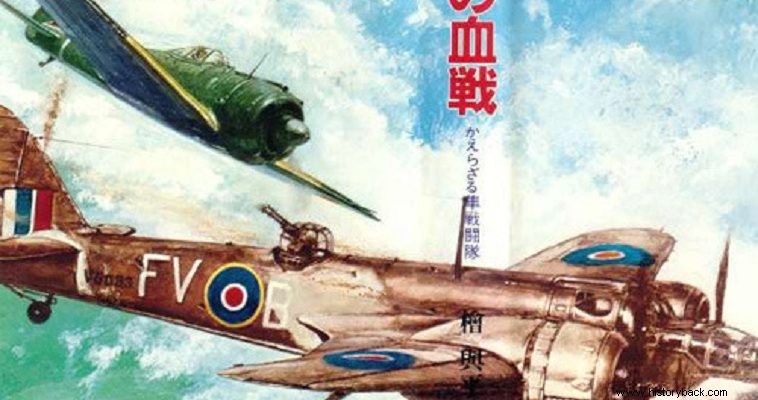
On May 22, 1942 the Japanese dominated from India's borders almost to the Pacific Ocean and they had every right to be optimistic. But war and confidence rarely go together. This lesson was learned, in the worst way for them, by Japanese ace pilots from a lone enemy aircraft that, in theory, was an easy target...
On that day a British light bomber Bristol Blenheim of the RAF's 60th Bombardment Squadron was returning to base after a raid on a Japanese airfield in Burma. The aircraft, piloted by Warrant Officer Haggard, machine gunner the "rookie" named "Anecdote" (a nickname given to him by his colleagues) Maklaki and navigator-bomber named Howitt, was flying over the Bay of Bengal.
The Blenheim was armed with two machine guns in the dorsal turret and of course it didn't have much chance of survival against the faster and highly maneuverable Japanese fighters. Unfortunately for him the lone British aircraft was spotted by aircraft of the 64th Pursuit Squadron of the Japanese military air force.
The Japanese squadron was equipped with the ultra-maneuverable Ki-43 fighters, known to the Allies as Oscars. Although they had only two machine guns, they nevertheless surpassed the British bomber in speed, maneuverability and, above all, numbers. The ace (10 kills) Sergeant Yoshito Yasuda was the first to pursue the British aircraft.
Soon the Japanese ace approached the slow-moving Blenheim and dived to attack it, confident of an easy victory. But he calculated without the "Joke". Although it was the first time he had used his machine gun in combat, Maklaki took down Yasuda's Oscar as it dived. The Japanese, with his aircraft hit, was forced to return to his base.
Then the attack was taken over by Otani. But he too fell victim to the "Joke" whose Vickers K machine gun "chirped" sending the Japanese captain back to his base as well, badly. Then three more Ki-43s appeared. The crew of the Blenheim considered that their last hour had now arrived. If they even knew who was the leader of the opposing swarm, they would be even more pessimistic.
The three Oscars were led by Lt. Col. Takeo Kato, an ace with at least 18 kills. But he too made the mistake of underestimating the enemy. So as he made a dive ready to pick off the Blenheim, his aircraft was heavily hit by Maclackie's machine gun and caught fire. Cato was doomed and he knew it. He was flying over the sea and had no hope of returning to his base. He probably didn't have the ability to abandon his aircraft. So he turned towards the sea and his plane, like a fireball, fell and crashed.
The other two Japanese pilots who were with him did not dare to attack. Instead they returned to their base to deliver the tragic, for them, news. Maclacky only learned who he had shot down on 22 August when he was informed by the RAF command there, while also receiving the warm congratulations of Rear Admiral Stevenson.
